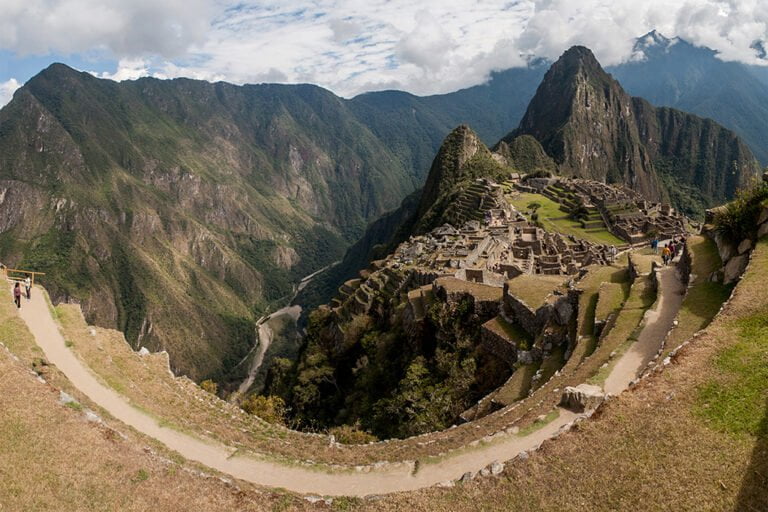What Do Bedouins Eat for Breakfast?
In the heart of the Arabian Desert, Bedouin breakfasts revolve around traditional dishes that blend simplicity, flavor, and cultural significance. Gahwa, a rich cardamom-infused coffee, is served with dates and crusty khubz bread, while sweet dumplings like luqaimat provide a sweet start to the day. Hearty meat and stew options like machboos and thareed offer sustenance for a day of nomadic travels. As the morning sun rises over the dunes, the aromas of freshly baked bread and spices fill the air, inviting you to discover the rich culinary heritage of the Bedouin people, where every bite tells a story.
Traditional Bedouin Breakfast Dishes
In the vast expanse of the desert, a traditional Bedouin breakfast often begins with a warm, sweet cup of gahwa, a rich coffee made from finely ground cardamom-infused coffee beans, served with a side of dates and crusty khubz bread. This humble yet satisfying start to the day is a reflection of the resourcefulness and hospitality of the Bedouin people. Accompanying the gahwa is often a selection of sweet and savory pastries, such as luqaimat, which are sweet dumplings filled with nuts and spices. These breakfast dishes are designed to provide sustenance for a day of traversing the desert, and are often shared with guests as a symbol of generosity and respect, demonstrating the Bedouin people's commitment to their values.
The Importance of Bread
Throughout Bedouin culture, bread serves as a staple food and a symbol of generosity, often playing a central role in meals and gatherings. It's an expression of the community's warm hospitality, where bread is broken and shared among guests as a sign of respect and welcome. In Bedouin tradition, bread is often baked in a communal oven, filling the air with the aroma of freshly baked dough. This simple, yet satisfying staple is often served with olive oil, za'atar, and cheese, providing sustenance for a day of nomadic travels. Whether at a family gathering or a festive celebration, bread remains an integral part of Bedouin cuisine, fostering a sense of community and togetherness.
Sweet Treats and Pastries
As we venture into the domain of Sweet Treats and Pastries, we find that Bedouin cuisine offers a delightful array of morning morsels and flaky pastry delicacies that satisfy sweet cravings. These sweet indulgences are an integral part of Bedouin hospitality, often served with warm tea or coffee to guests as a sign of respect and generosity. From sweet, sticky pastries to crispy, golden-brown treats, the Bedouin sweet tooth is a reflection of their rich cultural heritage in the sphere.
Morning Morsels Delight
Three sweet staples of the Bedouin morning meal are khunafah, a creamy cheese pastry, gurasa, a sweet, flaky bread, and luqaimat, sweet dumplings often drizzled with honey and sprinkled with cardamom. These treats are a delightful way to start the day, offering a sweet and satisfying beginning to a busy morning.
Some popular sweet treats enjoyed by Bedouins include:
- Ma'amoul: shortbread-like cookies filled with dates or nuts.
- Ghoriba: a sweet, semolina cake often flavored with coconut or nuts.
- Zalabia: deep-fried doughnuts soaked in syrup and sprinkled with cinnamon.
- Kunafeh: a sweet, creamy pastry made with shredded phyllo and cheese.
These sweet treats reflect the Bedouin's love for sweet and satisfying flavors, and their ability to create delicious pastries and desserts in the harsh desert environment. Their rich tradition of sweet-making is a demonstration of their resourcefulness and creativity in the face of adversity.
Flaky Pastry Delicacies
Beyond the sweet morning staples, Bedouin pastry chefs excel in crafting an array of flaky pastry delicacies that showcase their mastery of layers, fillings, and flavors. These delicate treats are often filled with sweet or savory ingredients, such as dates, nuts, or spices, and are typically served with a steaming cup of cardamom coffee or sweet tea. One popular pastry is the musakhan, a flaky, buttery delight filled with nuts and spices. Another favorite is the ma'amoul, a shortbread-like cookie filled with dates or nuts. These sweet and savory pastries are a staple of Bedouin breakfast cuisine, offering a delightful contrast to the hearty, savory dishes that follow.
Hearty Meat and Stew Options
In the harsh desert landscape, Bedouins rely on hearty meat and stew options to sustain them through long days of herding and travel. These nourishing dishes provide the energy needed to navigate the arid terrain. Traditional Bedouin breakfasts often feature a variety of meat and stew options, including:
- Machboos: a flavorful rice dish made with meat (usually lamb or chicken), onions, and spices.
- Thareed: a slow-cooked stew of lamb or beef, vegetables, and dried lime.
- Shuwaa: a rich meat stew cooked in an underground oven, often served with flatbread.
- Gahwa: a hearty breakfast dish of slow-cooked lamb or beef, served with dates and flatbread.
These dishes are not only delicious but also provide the sustenance necessary for a day of herding and exploring the desert landscape.
The Role of Dairy and Eggs
In the arid desert landscape, dairy and eggs play a crucial role in the Bedouin diet, providing essential nutrients and sustenance. Fresh camel milk, a staple in many Bedouin households, is rich in vitamins and minerals, while scrambled eggs are a beloved breakfast tradition. Meanwhile, yogurt parfait delights, layered with sweet honey and crunchy nuts, offer a rejuvenating respite from the scorching desert sun.
Fresh Camel Milk
Camel milk, a staple in the Bedouin diet, is rich in nutrients and offers a unique blend of benefits that set it apart from other types of dairy. It's an excellent source of protein, vitamins, and minerals, making it an ideal beverage for those living in the harsh desert environment. Fresh camel milk is consumed daily by Bedouins, often served warm and sweetened with dates.
Here are some of its key benefits:
- High in antioxidants: Camel milk contains high levels of antioxidants, which help protect against oxidative stress and inflammation.
- Rich in insulin-like proteins: It has been shown to help regulate blood sugar levels and improve insulin sensitivity.
- Boosts immune system: Camel milk contains immunoglobulins, which support the immune system and help fight off infections.
- Aids in lactose intolerance: Its unique composition makes it easier to digest for those with lactose intolerance.
Scrambled Eggs Traditions
We delve into the world of scrambled eggs, a staple in Bedouin cuisine, where dairy and eggs play a vital role in their traditional breakfast dishes. Scrambled eggs, or "bayd wa bayd" in Arabic, are a fundamental component of Bedouin breakfasts. Fresh eggs, often collected from their own chicken coops, are expertly whisked with a dash of salt and a dollop of camel milk, creating a creamy, savory delight. This protein-rich breakfast staple provides the energy needed for a day of herding, hunting, or trading in the harsh desert environment. The Bedouins' mastery of scrambled eggs is a testament to their resourcefulness and ability to thrive in one of the world's most unforgiving landscapes.
Yogurt Parfait Delights
Bedouins' reverence for dairy and eggs extends to their creative takes on yogurt parfaits, where tangy, creamy layers of camel milk yogurt, sweet dates, and crunchy nuts come together in a revitalizing oasis of flavors. This sweet and savory combination provides a rejuvenating start to the day, especially after a long night of traversing the desert dunes.
- Camel milk yogurt: Rich in protein and calcium, this yogurt provides a creamy base for the parfait.
- Sweet dates: Fresh or dried, dates add natural sweetness and a burst of flavor.
- Crunchy nuts: Pistachios or almonds provide a satisfying crunch and a touch of saltiness.
- Honey or sesame seeds: Optional toppings that add a drizzle of sweetness or a nutty flavor.
Refreshing Beverages and Juices
In the harsh desert climate, the Bedouins' beverage of choice is often a revitalizing concoction of dates and milk, served chilled to provide instant relief from the scorching sun. This traditional drink, known as laban, is a staple in Bedouin culture, offering a soothing respite from the arid landscape. Freshly squeezed juices, such as orange and pomegranate, are also popular among the Bedouins, providing a boost of vitamins and antioxidants to start the day. Additionally, sweet tea and coffee are common morning beverages, often served with dates and nuts as a warm and inviting gesture of hospitality. These revitalizing drinks are an integral part of Bedouin breakfast traditions, providing sustenance and energy for a day of exploration in the desert.
Modern Twists on Classic Recipes
Traditional Bedouin dishes are being reimagined with modern flavors and ingredients, infusing timeless classics with a fresh and exciting twist. This modernization of traditional cuisine is a demonstration of the Bedouin's ability to adapt and innovate while preserving their cultural heritage.
- Shakshuka with a Mediterranean twist: adding feta cheese, olives, and artichoke hearts to the traditional North African dish.
- Date-stuffed breakfast pastries: incorporating sweet dates into flaky pastry, perfect for a sweet breakfast treat.
- Spicy Bedouin breakfast burrito: wrapping scrambled eggs, chorizo, and sumac-spiced potatoes in a crispy tortilla.
- Cardamom-infused coffee cake: adding a hint of warm cardamom to a sweet, buttery coffee cake.
This modernization of traditional cuisine is an expression of the Bedouin's ability to adapt and innovate while preserving their cultural heritage.
Breakfast in the Desert Landscape
Amidst the vast expanses of sand and rock, breakfast in the desert landscape is a sacred ritual that sustains the body and nourishes the soul. In this unforgiving environment, Bedouins have developed a breakfast tradition that is both practical and flavorful. Dates, a staple in the desert diet, are often served with a strong cup of cardamom-infused coffee to provide a much-needed energy boost. Fresh bread, baked in a communal oven or over an open flame, is torn apart and shared among family and friends. The simplicity of this meal belies its significance, as it fuels the day's activities and fosters a sense of community and connection in the harsh yet beautiful desert landscape.


